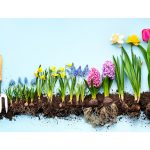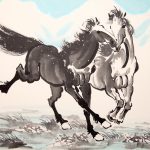Legacy: Connecting The Past And The Future

Reflection:
In August I facilitated a workshop titled “We are the Links Between the Past and the Future.” Participants wrote stories they remembered or had heard about an ancestor. The stories were fascinating and the reading at round tables was enthusiastic and appreciated by the listeners as each person shared what they’d written.
“Even if we didn’t know the context, we were instructed to remember that context existed. Everyone on earth, they’d tell us, was carrying around an unseen history, and that alone deserved some tolerance.”
– Michelle Obama in Becoming
The purpose for remembering the stories is to link the past and the future, which is part of the context of who we are. When we yearn for the stories as we age, we may discover we missed the opportunity; parents and grandparents are no longer available.
“…suddenly, for whatever reason…you decide that it’s important to let your children know where they came from – you need the information that people you once knew always had to give you, if only you’d asked. But by the time you think to ask, it’s too late.”
– Daniel Mendelsohn in The Lost
The legacy purpose for telling stories is to extract the lesson from the person’s life to pass those values and wisdom forward to future generations. After workshop participants shared their stories, I invited them to write the lesson they’d learned from the story, and the values illustrated by the life of their ancestor.
Here are values learned from two stories in Your Legacy Matters.
From a man writing about his 89-year-old grandfather, a farmer and rancher until he died. “My grandfather would often say that he never worked a day in his life because he loved what he did, and it didn’t seem like work at all…. And now, as I look over the span of his life – all the changes he saw, the harvests he reaped, the [generations] he welcomed into the world – I realize that even with 90 whole years, our time on earth is short indeed. That life is too short to spend doing work that doesn’t feel like play….”
From a woman writing about her grandfather before WWII, who gave “a little pile of change” every week to all the beggars who came by in their town of Ludbreg in Croatia. “I was fascinated by all of this then – and have remembered it always as a lesson ‘to be kind to the less fortunate, and always be as generous as possible.”
“I cannot have a future ’til I embrace my past.”
– Debbie Friedman, songwriter
Taking Action:
- If you know stories of your ancestors, write them using language as though you were talking to the next generation.
If you don’t know stories, but you have living family members who you can ask questions of, start there.
Connection now may only be possible from the questions we consider and ask. And those questions may be more important than answers, because they put us in relationship with the past generation and the family members we contact.
“Learn to love the questions themselves. Until some distant day, without your knowing, you will have lived into the answers.”
– Ranier Maria Rilke
- Then consider the meaning of the stories – what lessons do they teach you, about the story itself, and the person whose life and values are embedded in the story?
- Before you begin writing, I recommend reading the four paragraph template for writing a legacy letter (pages 232-233 in Your Legacy Matters) to guide you in using the elements of context, story, lesson, and blessing to ensure that your letter is simple, interesting, and meaningful.
- You may renew connections and deepen the family sense of belonging by asking questions. And you may find that others want to join you in the significant undertaking of preserving the family past, being the link between the past and the future, and gifting future generations with history deeply yearned for.
- After you’ve written your first letter, consider writing other stories and lessons for your family, including your own stories and the lessons you’ve learned from your experiences.
May your experience deepen belonging and a sense of family connection by seeking the stories and lessons of your roots and passing them forward to future generations,
– Rachael Freed
Rachael Freed, LICSW, senior fellow, Earl E. Bakken Center for Spirituality & Healing, University of Minnesota, is the author of Your Legacy Matters, Women’s Lives, Women’s Legacies and Heartmates: A Guide for the Partner and Family of the Heart Patient. Rachael Freed [email protected] and www.life-legacies.com














